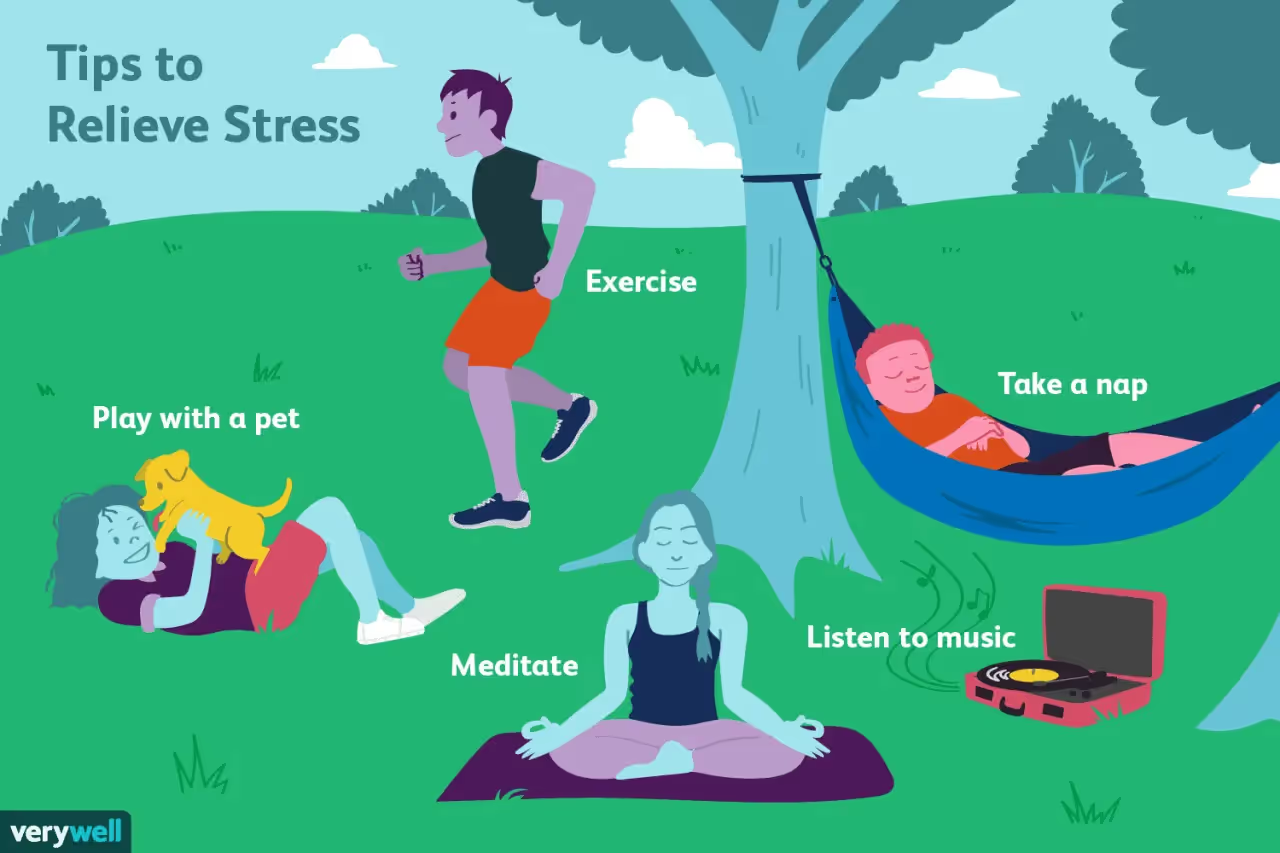Anxiety is a tricky thing to deal with for a number of reasons, but mostly because the things that make us anxious we know shouldn't.For instance, there's a...

Anxiety is a tricky thing to deal with for a number of reasons, but mostly because the things that make us anxious we know shouldn't.
For instance, there's a lot of anxiety that comes with giving a presentation in front of a group, but you know that at the end of the day, it's not a big deal at all.
Think back to the last time you gave a presentation (likely high school or college); now think about the moments leading up to being your turn, compared to the day after the presentation.
All that worry, all that fear, all those nerves building up higher and higher, then it's like it never happened- life is completely normal again.
Now compare that to where you are currently- could be 5, 10, or 20 years later and that worry probably seems so silly to you now.
Even if it was a terrible presentation, it had little to no effect on you looking back at it.
All that fuss for nothing!
But, in the moment, it felt like it could be the end of the world.
Why is that?
Why do we lose so much sleep and endure such discomfort and agony over things that a day or two later completely vanish?
And more importantly, is there a way to stop that? Can you lower anxiety?
Let's find out.
Let's start learning how to lower anxiety by examining how anxiety works.
That way we can understand why it feels so intense in the moment and why we hardly think about it after the fact.
To begin, anxiety starts as a fear response in the brain that sends signals to another part of the brain that is responsible for self-assessment.
This happens so fast that all we notice is the anxiety, all of a sudden we're sweating, our hearts are racing, the whole 9 yards.
The fear center of the brain is old, really old, and terribly outdated.
It was super effective for our cave-dwelling ancestors whose daily lives were constantly on the line.
It hasn't caught up to the modern day, so whatever we perceive as a threat to our self-perception (anything that risks embarrassment, judging, or ridicule basically) rings that ancient alarm system as if our life were in immediate danger.
Once we escape that moment (the presentation ends, we leave the party, our boss exits the room, etc) then that alarm system turns off and we feel a wave of relief.
It's like our mind says to the body, "Hooray we're alive! Now, what were we doing?"
Now there's no threat so the day resumes as normal.
Your mind does a poor job of remembering the feeling of safety and the fact that you were never in danger but does a tremendous job remembering the fear response.
This combination means having anxiety every time that situation appears, and in many cases that anxiety then spreads to things that are associated with the situation; i.e. boss in the room becomes going to work, becomes work itself, etc.
This is where anxiety can become a slippery slope.
Depending on how pre-disposed to anxiousness you are, aka how active your fear center is, what started as a singular fear can develop into a general anxiety about any number of things.
Let's look at the example at the bottom of the previous paragraph.
If you are a very anxious person and your anxiety skyrockets whenever your boss wants to speak to you, it isn't uncommon to generalize that fear to things you associate with your boss.
If she always comes to your office with bad news then you may benign to feel anxious just being in your office.
If she loves golf then you may get anxious when people talk about golf, and so on.
This isn't always the case but it's not exactly uncommon.
All of this anxiety creates stress, and all of that stress creates inflammation, and all of that inflammation creates more anxiety, depression, heart disease, brain disease, fibromyalgia, and much much more.
But this is good news because that means that if you can reduce your stress, then you can lower anxiety.
This is because stress reduction techniques lower inflammation; lower inflammation, and lower anxiety.

Let's lower anxiety!
More good news, there are hundreds of stress reduction tools out there, all you have to do to lower anxiety is find the ones that work best for you.
We'll go over a handful here to get you started, but more important than the specific tools you use, is the consistency with which you use them.
If you use your tools to lower anxiety every single day you'll notice big improvements in a much shorter amount of time.
Tool 1: Sleep
Tool 2: Physiological Sigh
Tool 3: Exercise
Tool 4: Meditation
These four tools are the best tools available to lower anxiety and reduce inflammation.
As I said, the difference in how effective they are is in how often you use them.
Anxiety is a tricky thing to deal with, especially in modern society.
By trying to protect us, it just limits how we experience life and makes everyday things harder to do.
Our brain is really bad at remembering how we feel after anxiety, but really good at remembering fear.
All of that fear and anxiety increases stress and inflammation which increases anxiety and many other chronic illnesses.
If you want to lower anxiety then you must lower inflammation by decreasing your overall levels of stress.
This can be done through meditation, exercise, improving your sleep, and implementing breathing exercises.
There are hundreds of relaxation techniques out there, what matter is how often you put them to work!
Lower your anxiety today but lowering inflammation.
Other activities which have been found helpful in reducing both immediate feelings of anxiousness and long-term anxieties associated with chronic disorders include yoga, journaling, nature walks, art therapy, volunteering, and other low-stress activities. Additionally, developing a healthy lifestyle incorporating adequate sleep, physical activity, and nutritious meals can help reduce overall stress levels.
Yes, Medicaid provides insurance coverage for therapy services specifically designed to help individuals struggling with anxiety, depression, and other mental health conditions.
It's important that you feel comfortable discussing personal matters with your therapist in order to open up and get more out of therapy sessions; therefore finding someone who meets certain criteria like experience level, expertise areas, and personality is key when selecting a therapist who can give meaningful feedback about how best handle issues related to anxiety or other mental health concerns.
Ignoring anxiety can exacerbate symptoms and make it more challenging to manage over time. This can result in a negative impact on your personal, professional, and social life, leading to feelings of isolation and even depression.
To reduce your anxiety, you can practice relaxation techniques such as deep breathing, progressive muscle relaxation, guided imagery, and mindfulness practices. Additionally, regular exercise has been found to be beneficial in managing stress and improving mental health.
Addressing anxiety is crucial because it can significantly impact your quality of life and overall well-being. Left untreated, anxiety can lead to more severe mental health issues, relationship problems, and difficulty functioning in daily life.